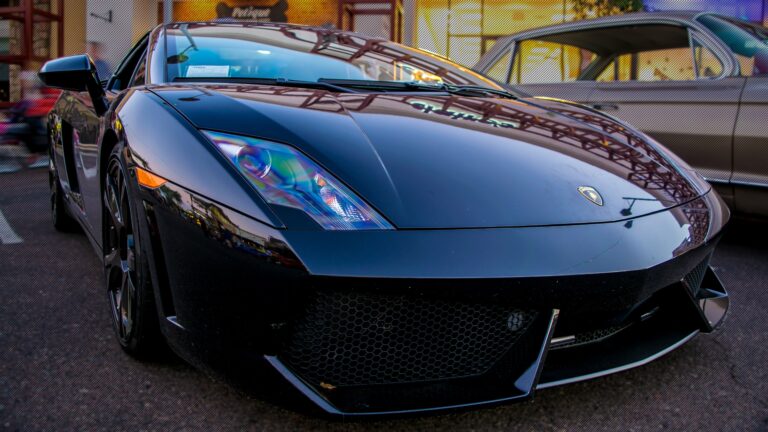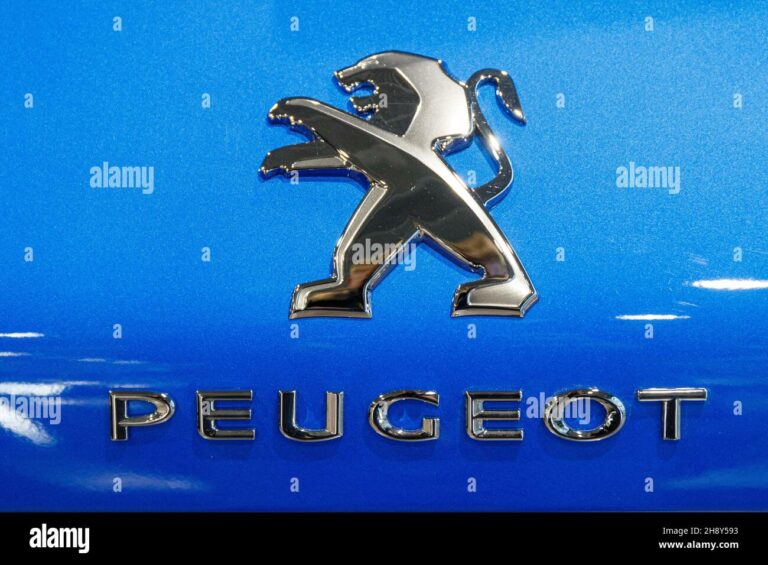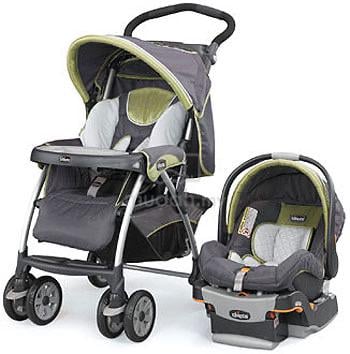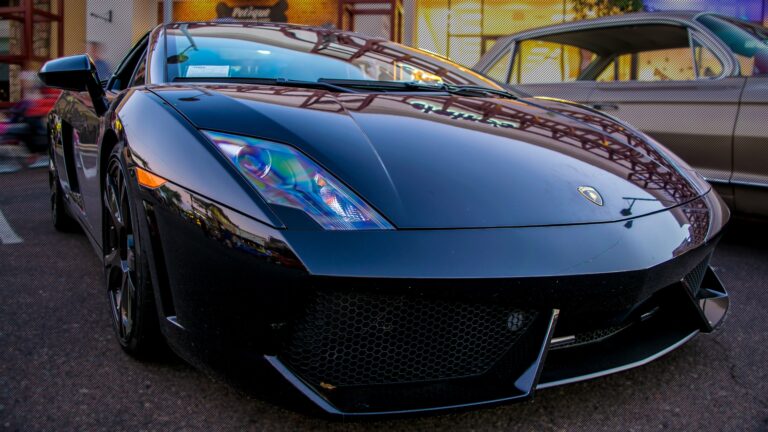Car Brands That Start With E: A Journey Through Automotive History and Innovation
Car Brands That Start With E: A Journey Through Automotive History and Innovation cars.truckstrend.com
The automotive industry is a vast tapestry woven with countless brands, each with its own story of ambition, innovation, and market dynamics. While some letters of the alphabet might bring to mind a plethora of globally recognized names, the letter "E" offers a uniquely eclectic and fascinating collection of car brands. From cautionary tales of the past to niche players pushing the boundaries of performance and cutting-edge electric vehicle (EV) startups, "Car Brands That Start With E" represent a microcosm of the industry’s ever-evolving landscape. Exploring these brands provides invaluable insights into market positioning, technological shifts, brand identity challenges, and the sheer audacity required to launch an automobile manufacturer. This comprehensive guide will delve into the diverse world of "E" brands, highlighting their contributions, challenges, and enduring legacies.
Echoes of the Past: Historical "E" Brands
Car Brands That Start With E: A Journey Through Automotive History and Innovation
The automotive graveyard is littered with brands that, for various reasons, failed to stand the test of time. Among those starting with ‘E’, several hold significant places in history, often serving as case studies in business and marketing.
Eagle (Chrysler Corporation): Born in the late 1980s from the ashes of the American Motors Corporation (AMC) acquisition by Chrysler, Eagle was envisioned as a sporty, sophisticated, and import-inspired brand to attract younger buyers. Its lineup included rebadged AMC models (like the Premier), Mitsubishi-sourced vehicles (such as the Talon sports coupe, a clone of the Plymouth Laser and Mitsubishi Eclipse), and the Canadian-built Summit. Despite some critical acclaim for models like the Talon, Eagle struggled to establish a distinct identity within Chrysler’s burgeoning portfolio, which also included Plymouth, Dodge, and Chrysler itself. By the late 1990s, with brand consolidation becoming a corporate strategy, Eagle was phased out, ceasing production in 1998. Its story underscores the difficulty of launching a new brand without a clear, unique value proposition in a crowded market.
Edsel (Ford Motor Company): Perhaps the most infamous example of a failed automotive brand, Edsel was Ford’s ambitious attempt in the late 1950s to create a new mid-market division, positioned between Ford and Mercury. Launched in 1957, the brand was plagued from the start by a combination of unfortunate timing (a recession hit just as it debuted), controversial styling (particularly the "horse collar" grille), and a convoluted marketing strategy. Despite significant investment and hype, the cars failed to resonate with consumers, leading to massive financial losses for Ford. Edsel was officially discontinued in November 1959, after just two model years. Its spectacular failure remains a classic case study in product development, market research, and the perils of overconfidence in corporate strategy.
Elfin (Australia): For a more niche and enduring historical "E" brand, we turn to Elfin, an Australian manufacturer of sports cars and racing cars. Founded in 1959 by Garrie Cooper, Elfin quickly gained a reputation for building lightweight, high-performance vehicles that excelled in various motorsport categories. Over its active history, Elfin produced a range of roadsters, coupes, and open-wheelers, often powered by readily available engines from manufacturers like Holden and Ford. While not a mass-market brand, Elfin cultivated a dedicated following and a strong racing heritage. The company faced challenges after Cooper’s death in 1982 but continued under various ownerships. Although production has been sporadic in recent years, Elfin remains a celebrated part of Australian automotive history, demonstrating how passion and engineering prowess can sustain a niche brand for decades.
Eunos (Mazda): In the late 1980s and early 1990s, during Japan’s "bubble economy," several Japanese automakers experimented with multi-brand strategies to differentiate their products and cater to specific market segments. Mazda launched three new marques: Eunos (luxury/sporty), Autozam (small cars/kei cars), and Efini (sporty/performance, like the RX-7). Eunos was positioned as a luxury channel, similar to Toyota’s Lexus or Nissan’s Infiniti, offering models like the Eunos Roadster (Mazda MX-5 Miata in other markets) and the Eunos Cosmo (a technologically advanced luxury coupe with a rotary engine). While some models were highly regarded, the multi-brand strategy proved unsustainable after the bubble burst. Mazda consolidated its sales channels in the mid-1990s, and Eunos, like its sister brands, was absorbed back into the main Mazda lineup.
These historical "E" brands offer valuable lessons: the importance of a clear market identity (Eagle), the dangers of misreading consumer tastes (Edsel), the potential for niche success (Elfin), and the challenges of brand proliferation (Eunos).
Emerging on the Horizon: Contemporary "E" Brands
The 21st century has seen a resurgence of new automotive ventures, largely driven by the electric vehicle revolution and the rise of ambitious manufacturers from emerging markets. Several contemporary "E" brands are attempting to carve out their own niches.

Elemental (UK): Elemental Cars is a British manufacturer known for its high-performance, lightweight track cars. Their flagship model, the RP1, is a radical, road-legal track machine designed with extreme aerodynamic efficiency and a focus on driver engagement. Utilizing a carbon-fiber tub and a powerful Ford EcoBoost engine, the RP1 epitomizes bespoke British engineering and a commitment to pure driving dynamics. Elemental operates in a very specialized segment, catering to enthusiasts who prioritize performance and track capability above all else. Their existence highlights the enduring appeal of artisan car manufacturing for a discerning clientele.
Electra Meccanica (Canada): Hailing from Vancouver, Canada, Electra Meccanica is an electric vehicle company primarily known for its unique single-seater, three-wheeled EV called the Solo. Designed for urban commuting, the Solo aims to address the common scenario of a single driver in a multi-passenger vehicle, offering a compact, efficient, and affordable electric solution. While the concept is innovative and has garnered significant attention, the company has faced challenges common to EV startups, including scaling production, securing funding, and gaining widespread market acceptance for such a distinctive product. Their journey is emblematic of the high-stakes world of EV innovation.
Exeed (Chery, China): Exeed is a premium sub-brand launched by Chinese automaker Chery Automobile. Positioned to compete with established international premium brands, Exeed focuses on advanced technology, sophisticated design, and higher levels of comfort and safety. Their lineup primarily consists of SUVs, such as the Exeed TXL and VX, which incorporate features like advanced driver-assistance systems, large infotainment screens, and robust powertrains. Exeed represents Chery’s ambition to move beyond budget-friendly offerings and establish a credible presence in the more lucrative premium segment, both domestically and potentially in export markets. It signifies the growing capability and aspirations of Chinese automotive manufacturers.
Everus (Honda/GAC, China): Everus is a brand created by the GAC Honda Automobile Co., Ltd. joint venture in China. Its primary purpose is to introduce affordable, often electric, vehicles specifically tailored for the Chinese market. These models often leverage existing Honda platforms but are re-engineered and branded differently to meet local consumer demands and regulatory requirements. For example, the Everus VE-1 is an electric SUV based on the Honda HR-V. Everus showcases how international automakers adapt their strategies through local partnerships to navigate the unique dynamics and rapid evolution of the Chinese automotive landscape, especially concerning new energy vehicles.
Elaris (Germany/China): Elaris is a German electric vehicle brand that adopts a strategy of rebadging and distributing Chinese-made EVs in the European market. By partnering with Chinese manufacturers, Elaris aims to offer a range of affordable electric cars and light commercial vehicles to European consumers. This approach allows them to quickly bring diverse EV models to market without the immense R&D and manufacturing costs typically associated with developing cars from scratch. While this strategy offers rapid market entry, Elaris faces the challenge of building brand trust and a robust service network in a highly competitive market accustomed to established European automakers.
Niche Players and Fleeting Visions: Other Notable "E" Brands
Beyond the more prominent historical and contemporary examples, the letter ‘E’ also encompasses even more niche or short-lived ventures that highlight the entrepreneurial spirit—and inherent risks—of the auto industry.
Eterniti (UK): Eterniti Motors was a short-lived British startup that aimed to create an ultra-luxury SUV, the "Hemera," intended to compete with vehicles like the Bentley Bentayga and Rolls-Royce Cullinan. Unveiled at the Frankfurt Motor Show in 2011, the concept promised extreme luxury and performance. However, despite ambitious claims and a sleek design, Eterniti failed to secure the necessary funding and production capabilities, and the brand quietly faded from view without ever bringing a vehicle to market. It’s a stark reminder of the immense capital and logistical challenges involved in establishing a high-end automotive brand.
Electric Last Mile Solutions (ELMS): ELMS was an American electric vehicle manufacturer that focused on commercial vehicles, specifically electric delivery vans for the "last mile" segment of logistics. The company gained significant attention, went public via a SPAC merger, and aimed to capitalize on the booming e-commerce delivery market. However, ELMS encountered severe operational and financial difficulties, including a restatement of financials and leadership changes, ultimately leading to bankruptcy and liquidation in 2022. Its rapid rise and fall serve as a cautionary tale about the volatility and intense scrutiny faced by EV startups.
EV Electra (Lebanon): EV Electra is a Lebanese electric car startup that has garnered attention for its ambitious plans to produce luxury electric vehicles in the Middle East. With models like the "Rise" sedan and the "Gloria" SUV concept, the company aims to showcase regional innovation and design. While the company has made headlines with prototypes and announcements, it faces the monumental task of establishing full-scale production, supply chains, and a global distribution network from a region not traditionally known for mass automotive manufacturing. Their journey is an exciting, albeit challenging, endeavor to put Lebanon on the automotive map.
The Strategic Importance of Brand Naming and Identity
While the letter ‘E’ itself carries no inherent automotive significance, the names chosen by these brands often reflect their aspirations. "Eagle" conveyed a sense of freedom and sportiness. "Elemental" speaks to purity and essential performance. "Exeed" suggests exceeding expectations. For any automotive brand, regardless of its starting letter, developing a strong identity, a clear value proposition, and a compelling narrative is paramount.
New brands face immense challenges:
- Market Saturation: The global automotive market is highly competitive.
- Capital Intensity: Developing and manufacturing vehicles requires enormous investment.
- Building Trust: Consumers rely on established brands for reliability, safety, and after-sales support.
- Differentiation: Standing out requires unique design, technology, or a compelling brand story.
The success or failure of "E" brands, like any others, hinges not just on their product, but on their ability to navigate these complex considerations, adapt to market shifts, and execute their vision flawlessly.
Practical Advice and Actionable Insights
For consumers, understanding the landscape of "E" brands means:
- Research Thoroughly: Especially for newer or niche brands, investigate their financial stability, production capabilities, and after-sales service network. Parts availability and long-term support can be concerns.
- Consider Resale Value: Niche or defunct brands often have limited resale markets.
- Embrace Innovation (Cautiously): New EV brands offer exciting technologies, but early adoption can come with risks.
For aspiring entrepreneurs or investors in the automotive space:
- Learn from History: The Edsel saga is a powerful lesson in market research and avoiding hubris. Eagle shows the perils of brand dilution.
- Focus on a Unique Selling Proposition (USP): What makes your "E" brand truly different and valuable? Elemental’s focus on lightweight track cars is a clear USP.
- Secure Substantial Funding: The automotive industry is capital-intensive. Under-capitalization is a common reason for failure (Eterniti, ELMS).
- Build a Strong Team: Expertise in engineering, manufacturing, marketing, and finance is crucial.
- Strategic Partnerships: Collaborating with established players (like Everus with Honda/GAC, or Elaris rebadging Chinese EVs) can mitigate risks and accelerate market entry.
Table: Car Brands That Start With E – Key Attributes
| Brand | Origin | Status | Key Focus/Type | Noteworthy Aspect | General Price Tier |
|---|---|---|---|---|---|
| Eagle | USA | Defunct (1988-1998) | Sporty, import-inspired | Chrysler’s attempt at a youth-oriented brand | Mid-range |
| Edsel | USA | Defunct (1957-1959) | Mid-market family cars | Classic case study of marketing failure | Mid-range |
| Elemental | UK | Active (Niche) | High-performance track cars | Focus on lightweight, aerodynamic engineering (RP1) | Niche/Luxury |
| Electra Meccanica | Canada | Active (Developing) | Urban Electric Vehicles | Known for the unique single-seater Solo EV | Entry-level EV |
| Exeed | China | Active | Premium SUVs | Chery’s upscale sub-brand, tech-focused | Premium |
| Everus | China (JV) | Active | Affordable EVs | Honda/GAC joint venture for Chinese market | Entry-level EV |
| Elfin | Australia | Active (Niche/Sporadic) | Sports & Racing Cars | Long-standing Australian racing heritage | Niche/Performance |
| Elaris | Germany (Dist) | Active | Rebadged Chinese EVs | Distributes affordable Chinese EVs in Europe | Entry-level EV |
| Eterniti | UK | Defunct (2011-2012) | Ultra-luxury SUV concept | Failed attempt to launch a high-end brand | Ultra-Luxury (Concept) |
| ELMS | USA | Defunct (2018-2022) | Commercial EVs | Focus on "last mile" delivery vans; went bankrupt | Commercial EV |
| EV Electra | Lebanon | Active (Developing) | Luxury Electric Vehicles | Ambitious Middle Eastern EV startup | Luxury EV (Concept) |
Conclusion
The journey through "Car Brands That Start With E" reveals a captivating segment of the automotive world, illustrating its dynamic nature, its historical lessons, and its exciting future. From the cautionary tales of Edsel and Eagle to the enduring spirit of Elfin, and the innovative strides of Elemental, Exeed, and Electra Meccanica, these brands encapsulate the spectrum of automotive ambition. They highlight the relentless pursuit of innovation, the high stakes of market competition, and the profound impact of global economic and technological shifts. While no single "E" brand currently dominates the global mainstream, their collective stories offer a rich tapestry of entrepreneurial daring, engineering ingenuity, and the ever-present challenge of carving out a lasting legacy in the fiercely competitive automotive industry. The letter ‘E’ truly encapsulates a diverse range of aspirations, from the echoes of the past to the electric dreams of tomorrow.
Frequently Asked Questions (FAQ)
Q1: Are there any major, globally recognized mainstream car brands that start with ‘E’ today?
A1: No, there are currently no major, globally recognized mainstream car brands that start with ‘E’ in the same vein as Ford, Toyota, or Mercedes-Benz. Most active "E" brands are either niche players (like Elemental), regional brands (like Exeed in China), or relatively new EV startups still establishing themselves (like Electra Meccanica).
Q2: Why did the Edsel fail so spectacularly?
A2: The Edsel’s failure was due to a combination of factors: unfortunate timing (it launched just as a recession hit), controversial styling (especially its vertical grille), a confusing marketing strategy, and market research that misjudged consumer preferences. Ford had invested heavily, making its demise particularly notable.
Q3: What’s the significance of brands like Exeed and Everus?
A3: Exeed and Everus represent a significant trend in the automotive industry: the rise of Chinese premium brands (Exeed) and joint venture brands (Everus) specifically tailored for the vast and rapidly evolving Chinese market. They showcase how Chinese manufacturers are aiming higher in terms of quality and technology, and how foreign automakers adapt to local conditions through partnerships.
Q4: Are most new "E" car brands electric vehicles (EVs)?
A4: Many of the newer "E" brands, particularly those launched in the last decade, are indeed focused on electric vehicles (e.g., Electra Meccanica, Elaris, EV Electra, ELMS). This reflects the global shift towards electrification and the opportunities it presents for new entrants to challenge established players. However, not all "E" brands are electric (e.g., Elemental still produces gasoline-powered track cars).
Q5: What should I consider before buying a car from a relatively new or niche "E" brand?
A5: Key considerations include:
- Company Stability: Research the company’s financial health and production outlook.
- After-Sales Support: Ensure there’s a reliable service network and parts availability in your region.
- Warranty: Understand the warranty terms and what they cover.
- Resale Value: Niche or new brands may have lower or uncertain resale values.
- Technology Maturity: For EVs, consider battery technology, charging infrastructure compatibility, and software updates.




